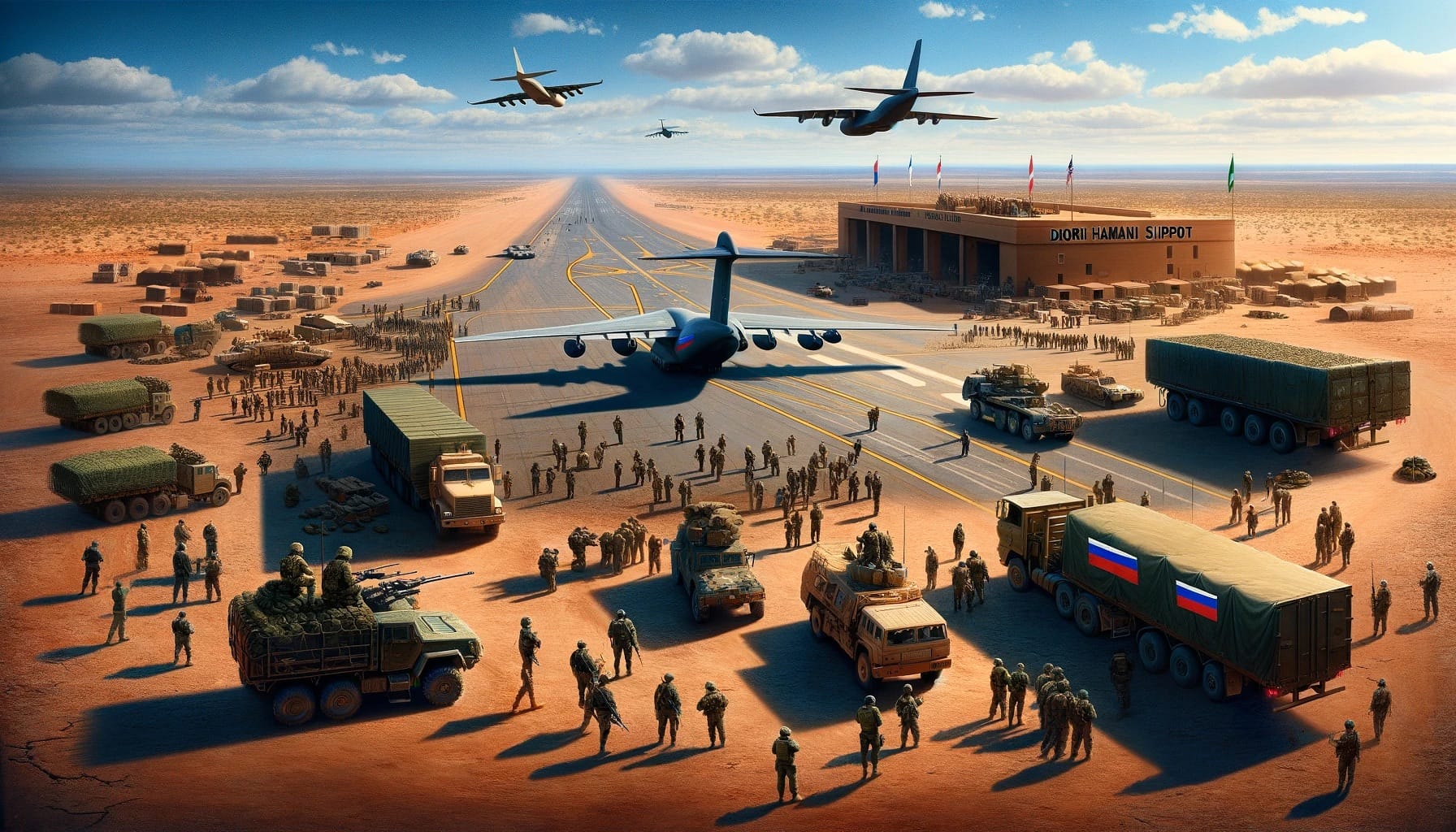Russian Troops Enter US Military Base in Niger Amidst Growing Tensions
In a significant escalation of regional tensions, Russian military personnel have entered an airbase in Niger that hosts U.S. troops, according to a senior U.S. defense official. This move follows a directive from Niger's military junta demanding the withdrawal of nearly 1,000 U.S. personnel,
In a significant escalation of regional tensions, Russian military personnel have entered an airbase in Niger that hosts U.S. troops, according to a senior U.S. defense official. This move follows a directive from Niger's military junta demanding the withdrawal of nearly 1,000 U.S. personnel, previously allies in the fight against regional insurgencies that have wreaked havoc across West Africa.
The presence of Russian forces at Airbase 101, adjacent to Diori Hamani International Airport in Niamey, places them in close proximity but not in direct contact with American forces, as they are using separate facilities. This development is part of a larger narrative of increasing military and diplomatic friction between the United States and Russia, particularly inflamed by ongoing conflicts in places like Ukraine.
U.S. Defense Secretary Lloyd Austin, addressing the situation, emphasized the separation between Russian and U.S. troops, noting that Russian personnel do not have access to U.S. equipment or operational areas. He reassured that the safety and protection of U.S. troops remain a priority and sees no immediate threat to them.
This incident occurs against a backdrop of recent coups in Africa where new regimes have frequently distanced themselves from Western influences. The departure of U.S. forces from Niger follows similar military withdrawals from Chad, while French forces have also exited Mali and Burkina Faso.
Russia has been actively looking to bolster its ties with African nations, portraying itself as a partner free from colonial pasts. This is evident in places like Mali, where the Wagner Group, a Russian mercenary organization, has been active in combating jihadist insurgents.
The strategic implications of these shifts are profound. The Sahel region faces the risk of an expansion in militant Islamic activity, potentially unchecked due to the absence of U.S. surveillance and counter-terrorism efforts. Moreover, the U.S. has expressed concerns about other international interests in Niger, notably Iran's pursuit of raw materials, including uranium.
The unfolding situation in Niger illustrates the complex interplay of local insurgencies, global superpower rivalry, and the shifting dynamics of international military presence in Africa. As the U.S. contemplates its next moves, the stability of the region hangs in balance, with significant implications for both local and international security landscapes.





